Prof David Whetham is Professor of Ethics and the Military Profession in the Defence Studies Department of King’s College London. He is the Director of the King’s Centre for Military Ethics and delivers or coordinates the military ethics component of courses for between two and three thousand British and international officers a year at the UK’s Joint Services Command and Staff College. Before joining King’s as a permanent member fo staff in 2003, David worked as a BBC researcher and with the OSCE in Kosovo, supporting the 2001 and 2002 elections. David is currently a Visiting Professorial Fellow at the University of New South Wales and is the Vice President and founding member of the European Chapter of the International Society for Military Ethics (Euro ISME).

What is the Centre for Military Ethics?
There’s a clear linkage between ethical behaviour within armed forces and their conduct on operations. Fostering ethical awareness and moral decision-making in military personnel is a proven way of reducing harm and suffering in conflict situations. It would seem obvious that there is substantial benefit for everyone in making them available as widely as possible, but there’s a real lack of quality materials out there that can be used by non-specialists. Having worked in this area for a sometime, and being unable to meet all of the demand, domestically and internationally, for quality teaching and support, I established the King’s Centre for Military Ethics in 2015, to conduct and coordinate research into the best ways of delivering effective professional military ethics education, and to develop material and tools to support those seeking to do it. We now offer quality distance learning material that can be accessed by anyone, either directly as students, or as a train-the-trainer tool. Because it is intended to be a global asset, available for free to those who need it, we have had input and support from many different military institutions, universities and international organizations. For example, the 18-part Key Concepts in Military Ethics course is available as a blended learning package for institutions. It was created with huge input from the University of New South Wales along with many other partners, and has now been taken by 10s of 1000s military personnel in the UK, Australia, and with Spanish subtitles, by all of the officers passing through the Colombian War College and the Infantry School in Bogota.
Can you tell us about the Centre for Military Ethics’ Playing Cards?
In short, we have developed an innovative education tool to support the teaching of military ethics outside of the classroom environment. Fifty-two questions from across the broad area of military ethics have been carefully developed, based on professional military ethics education curricula, in conjunction with research and testing on military focus groups, and in consultation with specialist lawyers. The questions are matched to playing cards which are available (at cost price) to military units and can be used to prompt informal discussion about the ethical challenges faced in military environments. Question include:
- Should a soldier challenge an order if they consider it to be illegal? If so, how?
- Is necessity ever a reason to break the laws of war?
- Can soldiers refuse to serve if they disagree with their government’s decisions?
To ensure an appropriate ‘take away’ from any discussion, each card has a QR web link to the King’s Centre for Military Ethics webpages where there are additional prompts, questions and information for each question, along with reading and articles. Groups of questions can be thematically linked so impromptu or pre-planned supported discussions can quickly be developed using the open-access material. They’re available in English, Spanish, Arabic, Serbian, French and Turkish, and we’re currently looking at expanding further. The tool will also be available as a free app to download soon thanks to a partnership with KCL and the Inamori Centre at Case Western Reserve University in the US. We also have a military medical ethics version of the tool in development.
Click here to test out the Military Ethics' playing cards app.
What are you currently working on?
My main research focus at the moment is working with the team led by Prof Martin Bricknell to get the Military Medical Ethics Education app completed and launched. We have some superb feedback from the beta testing process with medics based in the UK and across the MENA region and have been refining and amending our questions, support materials and the way they fit into an integrated learning package as a result of this.
In addition, I have just received research funding from Innovate UK to explore public perceptions of drones and their potential contribution to monitoring populations during pandemics. This involves working with an exciting tech start-up company. I am also supporting the development of ethical frameworks for the introduction of AI into Defence planning, processes and decision-making.
How are you finding working from home?
I would normally find myself visiting a one or two international military institutions per month to support military ethics education directly. The restrictions have meant that as well as shifting nearly all of my UK teaching online, I have been unable to travel and have instead been delivering support to Brunei, Colombia, Australia etc from home. Apart from the slightly unsociable hours of trying to match the working day in different places, this appears to have worked very well.
Who have been the most influential academics on your professional career?
I wouldn’t be doing what I do now if it had not been for Michael Walzer. His book Just and Unjust Wars, published in 1977, was enormously influential on me when I read it as a philosophy undergraduate, and started my move into studying all aspects of conflict and the normative questions that it raises. He is still contributing to the debates today, and I continue to find his deeply-considered but pragmatic approach refreshing.
